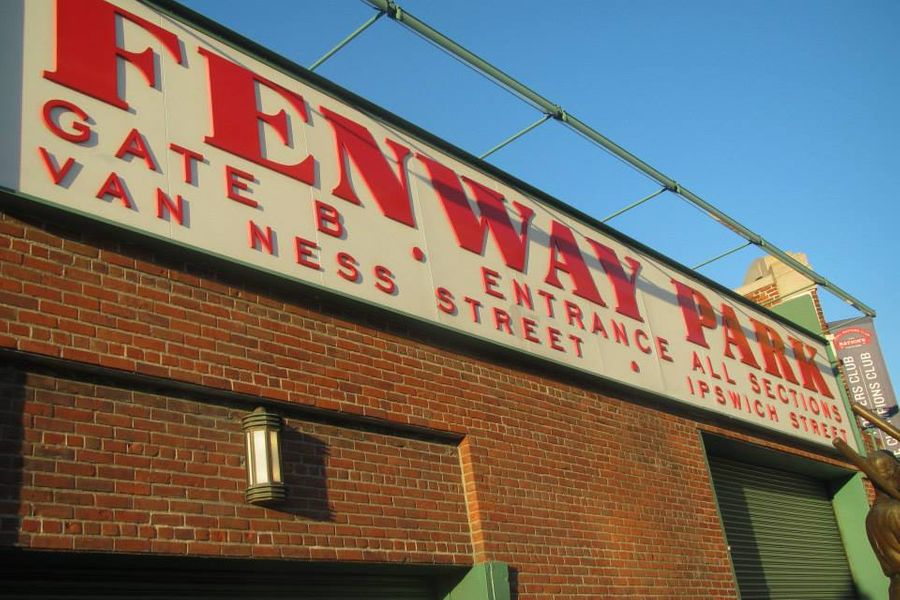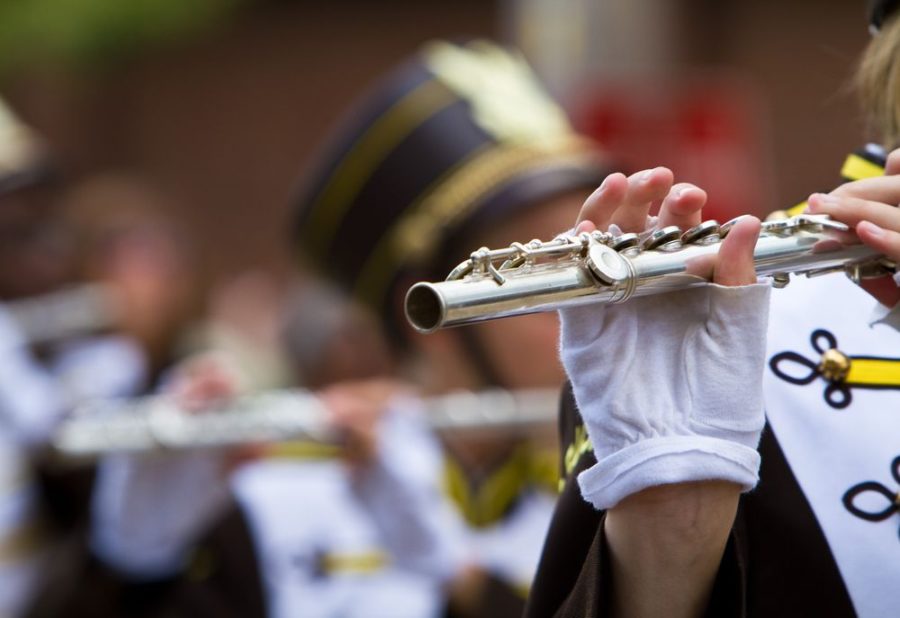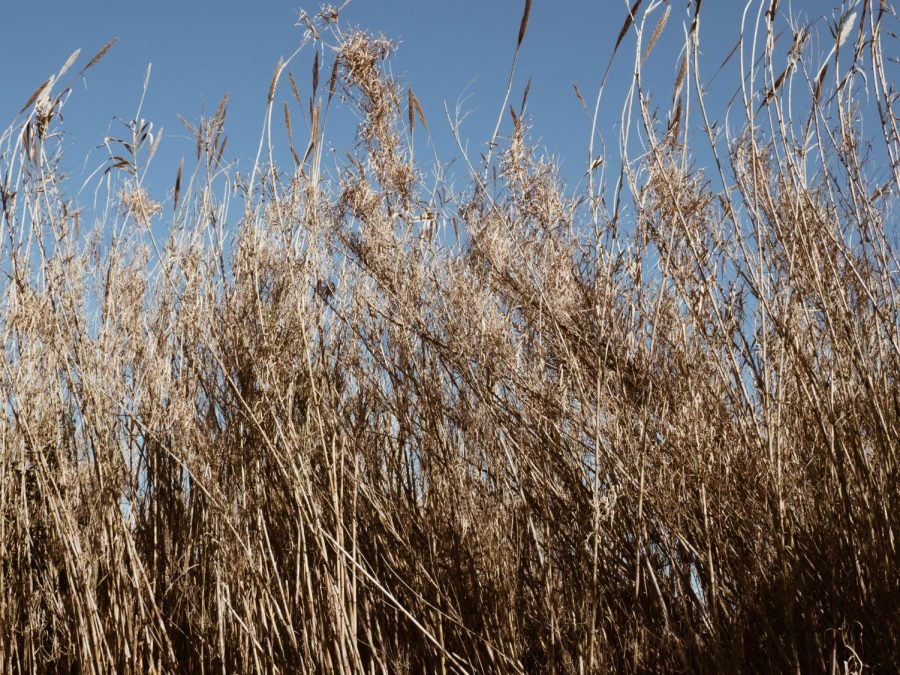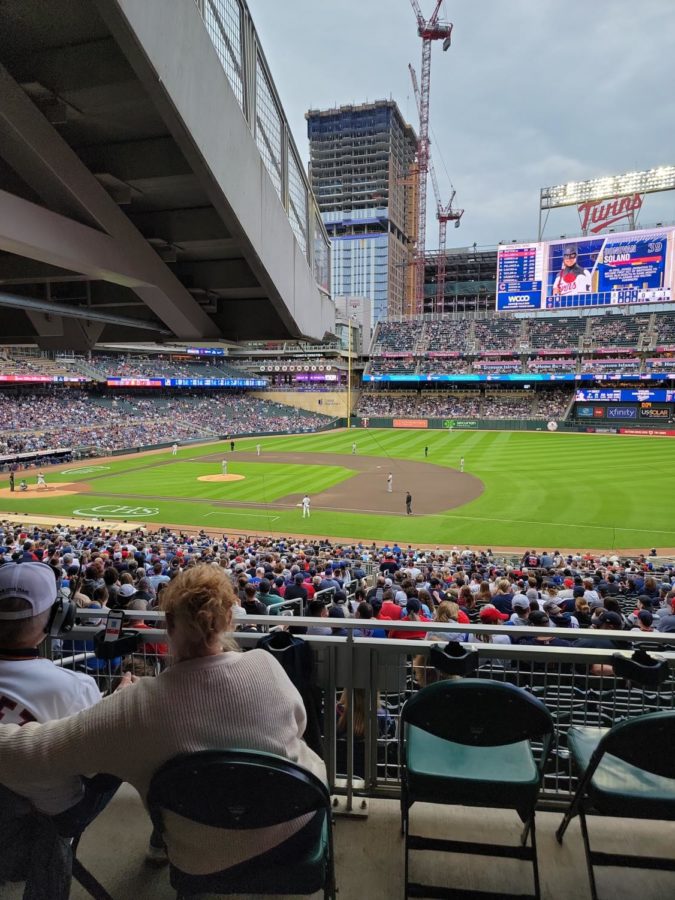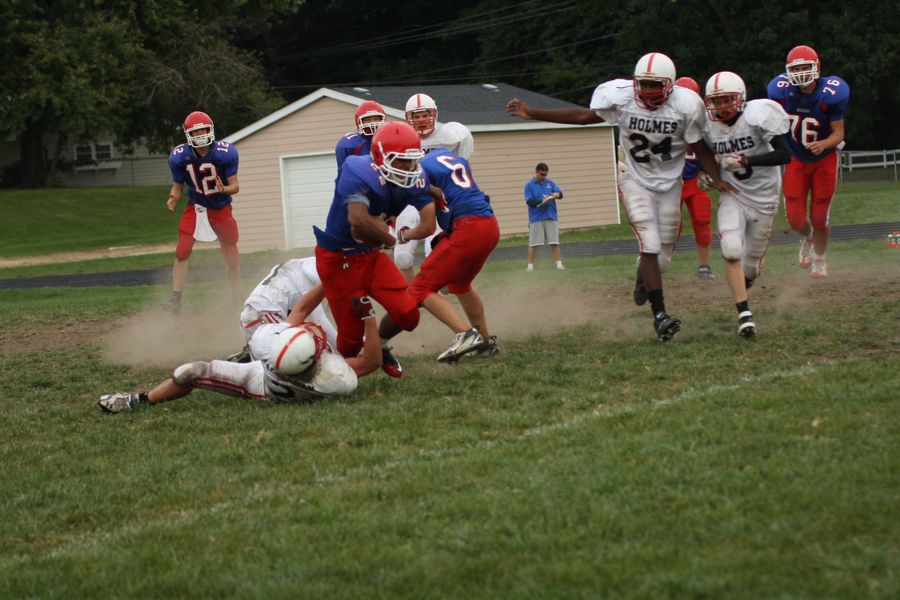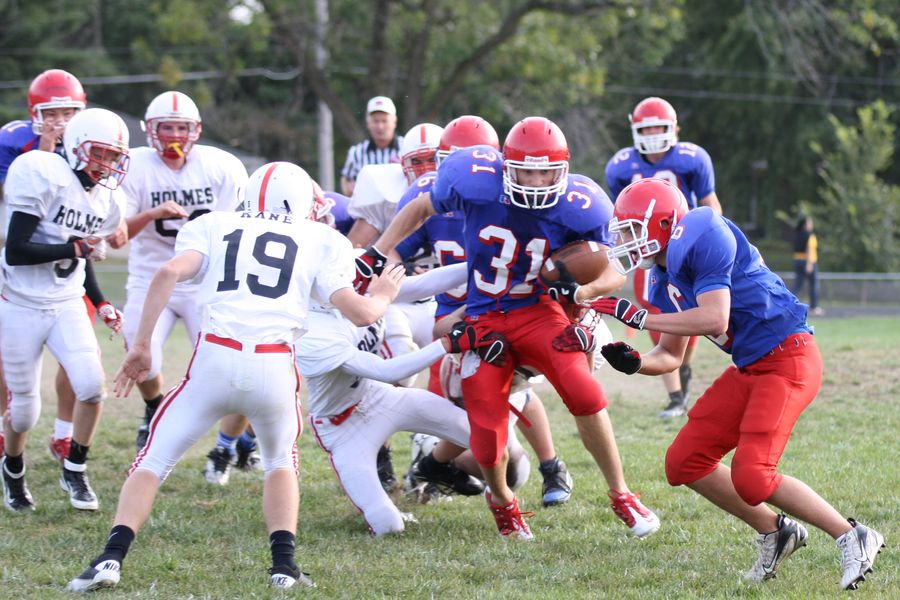On Tuesday, Aug. 8, Director of Bands Barbara Baker communicated to the Spirit of McIntosh Marching Band that the group’s typical practice field was set to become the new baseball field later this year, with construction expected to begin in Oct. – a month that happens to coincide with the start of the marching band’s competition season. Not only does the move affect practice, but last year’s addition of the tower has left the band potentially without a critical resource.
Senior Marching Band Drum Major Christian Clark is aware that the adjustment will affect the band at such a crucial time in their season.
“It will definitely be a challenge but by having more intense and focused practices we can overcome the reduced field time,” Clark said.
Others are not so optimistic.
“I don’t like that they have now decided to take the practice field away in the middle of the season. If they have to move it then it could cause a lot of conflict,” Chelby Gambrel, sophomore and Spirit of McIntosh veteran, said.
Landlocked
What makes McIntosh different from any of the other four high schools in the district is its location. Tucked between Peachtree Parkway, Walt Banks Road and Stevens Entry, McIntosh has nowhere to grow, despite the upcoming capital improvements planned for campus.
“I’m waiting to see what happens. Our situation is more unique and different than any other school because we’re landlocked. We have golf cart paths and houses on the other side of the practice field. We have businesses behind the current softball and baseball fields. We have a church here to the left of the school, and then up front, there’s a road so we don’t really have the land space that other schools have to expand out. Ultimately [we] will have to go up because you can’t really continue to expand,” Athletic Director Leon Hammond said.
New construction set to displace old field
Having a consistent place to practice the halftime show, which is also the band’s competition show, will affect the band’s abilities to memorize, learn and perform a competitive show.
“Last year having the practice field was great. It really helped us prepare but now that we’re not going to have what we did it may affect our learning of our show. This will definitely be a huge change not just for vets but rookies as well,” Ava Cook, junior and color guard leadership member, said.
When the current band practice field ceases to be functional in the construction process will affect the availability of not only band staff members, but also students themselves. The marching band schedule is created each year before the season starts and usually contains minimal changes throughout the season regarding practices. With this development, Baker will have to change the current marching band schedule to fit with the times members can use the stadium or a lined field, which, in turn, will affect the number of members at each practice.
“The practice field’s been an ongoing issue this year because of all the construction, part of what’s been really hard for us as Boosters is not knowing a time frame. And not knowing where the band is going to get put when the practice field gets taken away. We’re told that the timing of that will happen at the beginning of October, which is marching band’s business time. So for us, it is a little frustrating and a little hard to deal with because we don’t know exactly what’s coming at us. We don’t know what’s going to happen,” Shannon Sylvester, Band Booster President said.
The Band Boosters have struggled to help the marching band rearrange their practice schedules in light of the upcoming move. Band Booster parent and council member Susan Love knows firsthand how difficult the rearranging is.
“One of our biggest roles is to support Baker and [assistant band director] Hopkins in everything they do. They’re working on the fly now. So we’re changing our schedule weekly, daily, sometimes. We’re all scrambling to try and do what we can to support [them],” Love said.
And the rearranging is now affecting the student band members.
“We already practice several days a week. But what’s happening, especially with the colorguard, is now they’re practicing almost every day and the one day that wasn’t a practice day really ever was Wednesdays. Now we’re having to practice on Wednesdays. That’s when they plan on going to church, going to a lesson and studying. So it’s putting a lot of stress, not just on the band directors, but I think on the kids as well and the parents,” Love said.
“It feels like it’s out of our hands,” Sylvester said.
“As band parents, it’s hard for us because our kids are upset. Our kids get frustrated and stressed out. And from day to day, they don’t know what’s going on. There seems to be nothing any of us can do about it,” Love said.
The tower as a tool
The tower was added to the practice field last year and is a key component when it comes to viewing the drill sets, or shapes, the band makes while performing. Basically, the football field is used as a graph and each student is a point on the graph – providing the directors with an accurate view of each marcher’s position in relationship to the others.
Baker explains the importance of the tower.
“The practice tower is where you can get up and you can see, from the same perspective of the judges, what the drill pictures and formations look like. Without that perspective, you’re not fully prepared to compete. You don’t know if the forms are right or wrong. You don’t know if they’re landing at the right time or the wrong time. It also takes much longer to correct the drill when you never get the opportunity to get to that high perspective. The other reason is sound is very different at that distance and that that angle to fix balance and projection issues, to be able to communicate to the kids if they need to do more or less; play a note longer or shorter. Your sound perspective from ground level is different from that person who’s giving you a score in competition,” Baker said.
Funding for the tower
According to Sylvester, the tower was installed last year and was paid for by the district.
“That was all county money. I believe that all the schools got one of those towers for the high schools, for their marching bands,” Sylvester said. “We don’t exactly know what will happen with that tower, whether they will try to move it to wherever our new practice field is, or whether we will lose the capability of having that tower. I’m hoping that doesn’t happen because we will be the only high school in the county to not have one.”
Hammond is unsure of the tower’s status but remains optimistic.
“I assume the tower will be moved to wherever we’re going to have practice field space. That would make the most sense, but again I haven’t really been given any information about that particular piece,” Hammond said.
Love uses the tower not just as a tool for the band, but as a revenue stream for the program.
“[The Band Boosters are] able to use it for advertising and we’re able to have sponsors, which gives us as a band more money for our funds,” Love said.
Sylvester agrees.
“Currently we have two tower sponsors for marching band. Those sponsors paid $800 to get a banner on that tower, which is visible right now from not only our parking lot but also Walt Banks Road. So it has a lot of visibility for those few sponsors,” Sylvester said.
Scheduling practices around construction
Should the demolition of the old practice field begin according to the April Capital Improvement Plan, at the start of Oct., the marching band will not have a place to practice consistently just as their competitive season begins.
“The band schedule will definitely change tremendously. Considering we’re having to change our field so close to competition season, which could throw us for a loop,” Cook said.
Second-year marchers are also concerned about themselves with this setback. As compared to first-year marchers, they only have minimal experience learning a competition-ready show.
“[If] the band practices were to move to Wednesday, it could affect me because I meet with my church youth group every Wednesday and I also am already signed up to volunteer with the little kid’s music group every Wednesday. People might have things pre-scheduled around the marching band that they now can’t get out of. That then affects the whole band because it could hold us back if people can’t be there,” Gambrel said.
And inconsistent practice time could affect the band’s performance at either halftime or at competition.
“It could affect my experience by making it harder to memorize my drill or by just not having as much time to work on the drill before a competition and that could make it more stressful. Compared to last year I felt like we had time to get stuff done and still have lots of fun doing it,” Gambrel said.
That’s a concern shared by others.
“I definitely think it will result in stricter practices compared to other years, especially my freshman year which had very relaxed practices as we weren’t competing. It will definitely make preparing for the competition season more difficult,” Clark said.
“It might make my regular schedule slightly more inconvenient because practices will no longer be consistent,” Low Brass Leadership member and senior Lana Mayes said.
Should construction on the band’s old practice area begin according to the current timeline of Oct., the new practice area would be what is currently the baseball field – and a baseball field isn’t marked the way a football field is, with yard lines.
“It is definitely upsetting because it really gives us a look at marching on a field with yard lines and will help us get better at marching before moving to the stadium,” Cook said.
While the actual McIntosh stadium practice field appears to be the solution to the band’s potential practice site, the availability is limited because other sports, such as football, have reserved it long in advance and there are few open opportunities.
“I think we’ll just have to schedule practices on a different date so we can practice on the football field. It sucks that the band won’t have easy access to the stadium field, but it’s not any other organization or sports’ fault for already having claimed use of the field. They shouldn’t have to give up time on a field that they need in order to give us more time on [a] field we didn’t reserve in the first place,” Mayes said.
One potential option for the band is to practice at the Center of Innovation, which is the former site of JC Booth Middle School, but that would require the band to travel to the old band campus for practice. This would include all of their large and hard-to-manage equipment, such as the pit ensemble.
“That is one option; we would use [Booth’s] old football field. My understanding is that the pit would not go because getting those instruments over there two or three times a week is not really feasible. But the rest of the band would go over and practice on a field for that month. I can’t see that that’s being super beneficial because that’s the month where we need to be gelled together as an entire band,” Sylvester said.
Love also brought up the site’s lack of facilities.
“While they actually have a field there’s no shade. There’s no place for the restroom. I don’t know whether or not it’s even worth it,” Love said.
What all the changes could mean
Some band leadership members went on to explain how this change could affect new members of the band who might have never marched before. Meaning this could be their first time for many aspects of marching band that are hard to learn.
“My worries for rookies and for the band as a whole is definitely that they won’t enter the competitions with a sense of confidence that comes with lots of practice. I think rookies might end up with a lot of nerves going into the first few competitions,” Clark said.
Such setback could discourage rookie members from returning.
“My biggest worry, as a band captain, is that the rookies get discouraged from the less-than-ideal circumstances. It feels like the band always gets the short end of the stick forced upon them, but I want them to know that we have and always will work past these things. We’ll end up having a stronger program because of these hardships, no matter how bleak it might seem,” senior Brass Band Captain Thomas Wagoner said.
What are perceived to be last-minute changes, and their timing, makes some band students feel the award-winning program has been disrespected.
“I mostly just feel bad that they have to be a part of an organization that commands so little respect that it’s an easy decision… to switch out their practice field for a new baseball field and tennis courts. They joined this band to be a part of something and make new friends, and instead, they have to deal with a bunch of these issues that are completely out of their hands,” Mayes said.
Senior Color Guard Band Captain London Whilby sums up the hopes some marching band members have when it comes to how the band can recover from this setback.
“At the end of the day the change was extremely last minute for everyone, staff and members, captains and rookies, [all] will have to be able to take every opportunity we can to better ourselves leading to competitions,” Whilby said.
The future
The potential conflict the capital improvements have stirred up within the Band Booster group has created uncertainty.
“I’ve heard other parents may be considering writing letters to say that they oppose this. Because this basically leaves us with nowhere because we’re being shuffled around as it is. And that marching band seems to be kind of the last thing that’s considered,” Love said.
Sylvester understands McIntosh’s need to grow and that, overall, this project is potentially in the best interest of students in general.
“This is a big project that they’re undertaking. There’s going to be new concession stands being built, and we know that there’s going to be some give and take that’s necessary. What we were really asking for is if the whole thing could have been pushed by a month, so that our busiest month of practices and competition season could have been finished before we lose the ability to practice on that field. We want to work with them. This could end up being really good for us if our practice field ends up being the current baseball field that’s actually closer to the band room. But in the middle of our busiest season, it’s really hard to deal with,” Sylvester said.
Whilby has high hopes for the change, whenever it comes.
“I honestly have no idea how the band will recover from the loss of the practice field, but I do know all members and staff will try their hardest to make the season as smooth as possible despite this interruption,” Whilby said.
But some band members believe the worst the band could face is actually far behind them.
“I don’t think anything could be worse than COVID. It’ll be annoying, but nothing that we can’t handle. I still plan on enjoying this season,” Wagoner said.
“After dealing with COVID my first year, I can firmly say that this is not the worst problem we’ve ever faced. It’s a little disappointing to have this happening my last year, but, overall, I don’t think it will change my experience as a band member that much,” Mayes said.
This story was originally published on McIntosh Trail on September 27, 2023.

